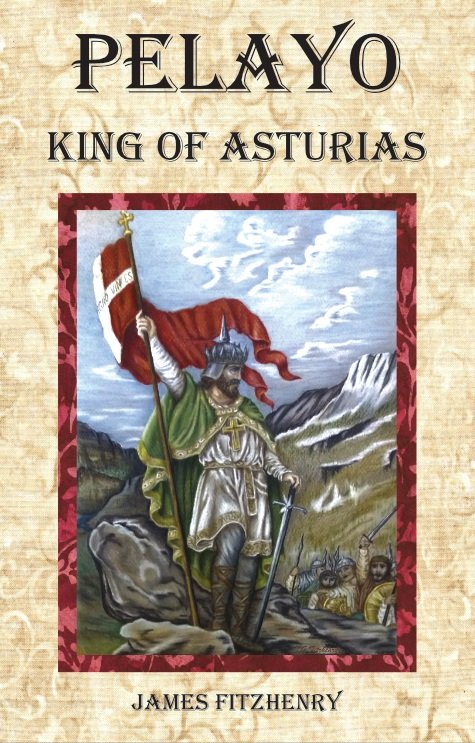Robert King of Naples

Venerable Robert, King of Naples
Robert was the younger brother of Bishop St. Louis of Anjou and the son of King Charles II of Naples. When his father was taken captive in a war with the king of Aragon, Robert and his brothers, Louis and Raymond, were sent to Spain as hostages for their father, and as such were compelled to remain for six years in Barcelona. While there, the princes received an excellent education in piety and learning from three learned Franciscans. Robert fostered in an especial manner a great devotion toward the Blessed Sacrament of the Altar.
Upon the death of his father, Robert ascended the throne of the kingdoms of Naples and of Sicily, since his brother Louis, who was first in line for the honor, had consecrated himself to God in the ranks of the clergy. However, even as a king, Robert persevered in his pious disposition and publicly manifested his lively faith. With his equally devout wife, Sancha, he manifested a special love for the children of St. Francis, whose Third Order both had joined. At Naples, they built a convent for the Franciscan Friars and another for the Poor Clares.
When the affairs of government had been attended to for the time being, the king counted it as his most pleasant relaxation to go to the convent of the Friars Minor and to take part in all the exercises there; not infrequently he even took part in the recitation of the Divine Office at midnight.
Venerable King Robert of Naples
In the year 1335, he was anxious to resign from the government and enter the Franciscan Order, but insurmountable obstacles placed themselves in his way. He did, however, furnish a chapel in his palace together with living accommodations for twelve Franciscan priests, in whose midst he thereafter spent all the time that could be spared from state affairs. He himself lived among them like a religious.
When Robert became ill and felt his end draw near, he put all the affairs of his kingdom in order and forbade the court officials to mention temporal matters to him again. Thereupon he begged for and received the habit of the Friars Minor, in which, a week later, in the year 1343, he gave up his soul while absorbed in quiet prayer.
In accordance with his wishes, he was buried in the religious garb, without any pomp, in the church of the Poor Clares which he and his wife had built.
Faith does not of itself lead to salvation, but only when good works are built upon this foundation, and it manifests itself through them as a practical faith. Christ Himself testifies: “Not everyone that says to Me Lord, Lord,” that is, not he who just professes his faith in Me, “shall enter into the kingdom of heaven; but he that does the will of My Father, who is in heaven, he shall enter into the kingdom of heaven.” (Mt. 7,21)
How practical was the faith manifested in the life of the servant of God Robert! Although he was king over rich and beautiful countries, he did not give himself up to sensual gratification and did not seek pleasure in vain pomp. Rather, he attended conscientiously to the affairs of state and then found his pleasure and relaxation in the divine services celebrated by lowly religious. That was indeed practical faith in that fundamental truth of Christianity, that man is not upon this earth for the purpose of enjoying material things, but rather to serve God and find his pleasure in Him.
In order to keep our faith alive, we should frequently, especially after spiritual reading or at the conclusion of a sermon and similar exercises, compare our life with the truths of the faith that have been expounded to us. If our conduct is not in conformity with these truths, we must at once begin to amend, otherwise our faith will itself be witness against us at the judgment, and the heathens and infidels will fare far better than we who are well instructed Christians. “Oh, that their life,” says Thomas a Kempis, “had been in keeping with their learning! When the day of judgment comes, it will not be asked of us what fine discourses we have made, but how religiously we have lived.”
Prayer of the Church
Grant, we beseech Thee, Oh Lord, to all Christian peoples to acknowledge in deeds what they profess in faith, and to love the heavenly gift which they frequent. Through Christ our Lord. Amen.
*from the Franciscan Book of Saints by Marion A. Habig, OFM
Now Available!!
Pelayo's resistance initiated the nearly 800-year-long Reconquista to take back his country from the ruthless invader who had conquered his homeland and sought to erase his culture and his faith. His actions would lay the foundations of a Kingdom for Christ that would eventually reach around the world and spread the Catholic faith to millions of souls. Read more...
Please help us continue to bring high quality books to our readers at the lowest possible price! Click the link below! Thank you!
Now Available!
Catholic Vitality Publications presents . . .Brand new by
James Fitzhenry
Now in paperback!
Battles - Honor - Miracles! This
book is filled with amazing stories of little-known Catholic heroes presenting
spectacles of bravery and valor never exceeded in all the annals of history. read more. . .
Now Available for $24.95
Also available:
Catholic Vitality Publications
Roman Catholic books currently published by Catholic Vitality Publications:
El Cid, God's Own Champion
-the amazing true story of the life of Rodrigo Diaz, El Cid!
Available for only $22.95
St. Fernando III
A Kingdom for Christ
- King St. Fernando III, born 100
years to the month after the death of
the Cid. His life was filled with miracles
and many conquests!
Available now for $26.95
Discounts available for bulk
orders and for bookstore
retail sales! Just contact us




